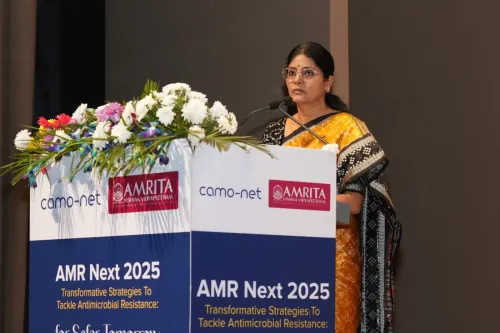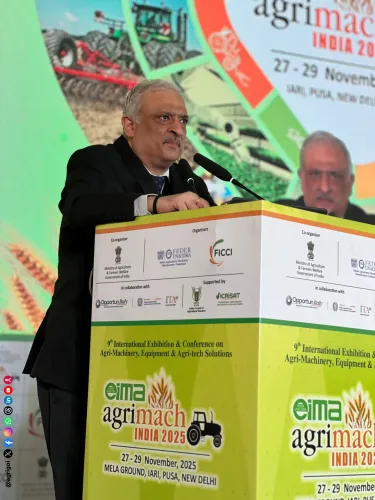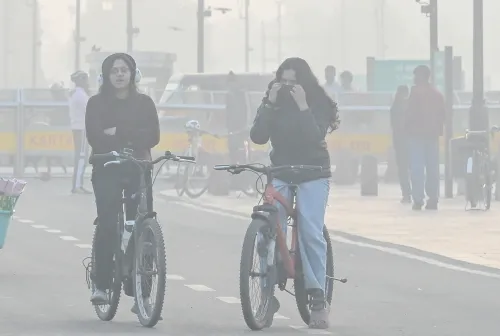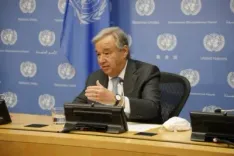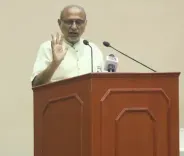What Are the Consequences of Seizing 1,985 Tonnes of Banned Single-Use Plastic Items?
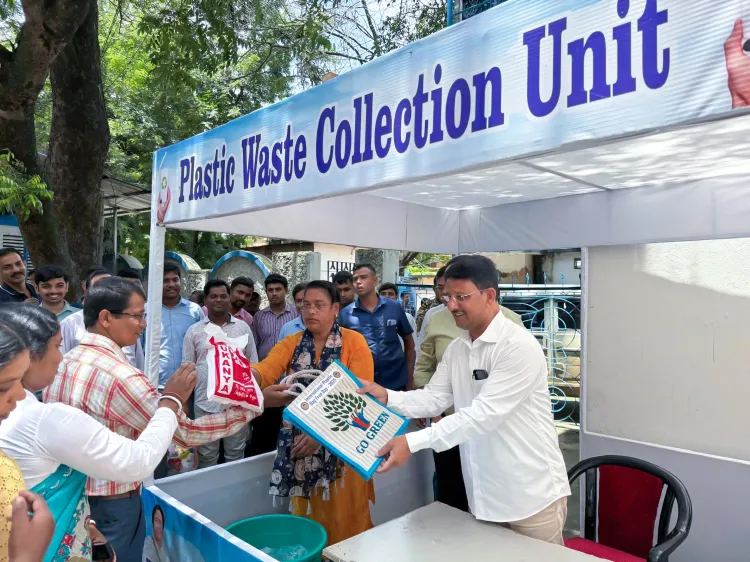
Synopsis
Key Takeaways
- Over 1,985 tonnes of banned single-use plastics confiscated.
- Fines amounting to Rs 19.82 crore imposed.
- 861,740 inspections conducted since 2022.
- Launch of a compendium for eco-alternatives.
- 157 lakh tonnes of plastic waste recycled since the EPR guidelines.
New Delhi, Aug 4 (NationPress) A staggering 1,985 tonnes of prohibited single-use plastic items have been confiscated, with a fine of Rs 19.82 crore imposed, as reported by Kirti Vardhan Singh, Union Minister of State in the Ministry of Environment, Forest and Climate Change, during a parliamentary session on Monday.
In a written statement to the Lok Sabha, Singh highlighted that ongoing enforcement initiatives are in place to uphold the ban on specified single-use plastic items.
“The Ministry of Environment, Forest and Climate Change issued the Plastic Waste Management Amendment Rules, 2021, on August 12, 2021, which prohibits certain Single Use Plastic (SUP) items characterized by low utility and high potential for littering, effective from July 1, 2022,” Singh explained.
Since 2022, a total of 861,740 inspections have been carried out,” he noted.
Singh also mentioned that the ban has spurred the creation of innovative eco-friendly alternatives. Consequently, the Ministry and the Central Pollution Control Board have developed a “Compendium of manufacturers/sellers of eco-alternatives” to banned single-use plastic items, which was launched on World Environment Day, 2025.
“This compendium lists nearly 1,000 units across the nation. In line with the development of eco-alternatives, the Bureau of Indian Standards previously notified Indian Standard IS 18267 for food-serving utensils made from agricultural by-products,” Singh added.
According to the Centralised EPR portal on plastic packaging, 51,838 producers, importers, and brand owners, along with 2,948 plastic waste processors are registered.
“Since the introduction of the Extended Producer Responsibility (EPR) Guidelines on plastic packaging on February 16, 2022, approximately 157 lakh tonnes of plastic packaging waste has been recycled,” the Minister of State stated.
This year’s World Environment Day was observed nationwide under the slogan ‘One Nation, One Mission: End Plastic Pollution’.
The National Plastic Pollution Reduction Campaign (NPPRC) has initiated various activities from June 5 to October 31 aimed at diminishing plastic pollution in both tiger reserves and urban and rural settings, as well as minimizing the use of avoidable single-use plastics in government offices, among other efforts.

